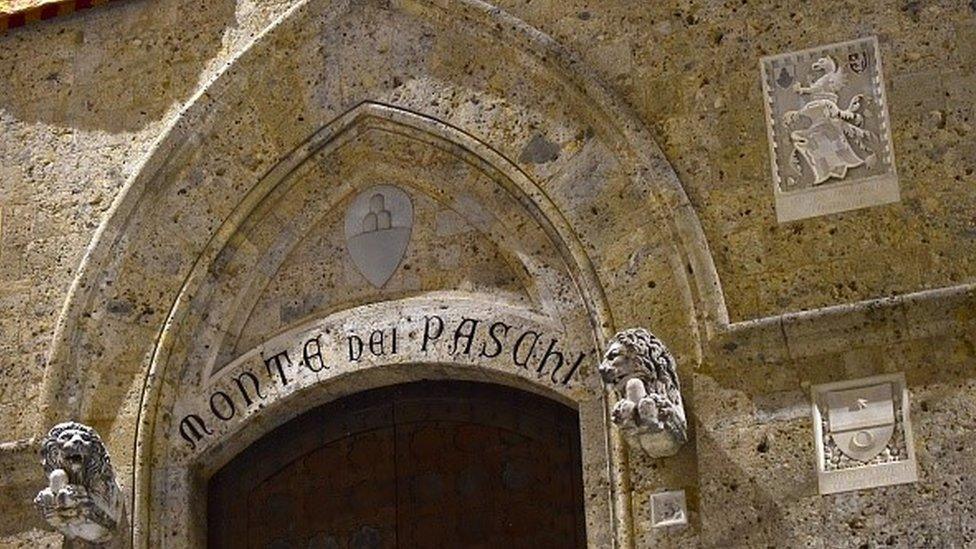The weakest bank in Europe just got weaker
- Published
- comments

Although the share price of Europe's oldest bank Monte dei Paschi is little changed this morning, that may not last if the consortium of investors planning a €5bn cash injection abandon their rescue attempt amid the political vacuum opened up by Italian Prime Minister Matteo Renzi's departure.
They will meet on Monday afternoon to decide their response.
The boss of the bank has described this plan as getting "several holes in one in a row".
Golfers will know how hard that is and the wind of political risk has just picked up.
If they do decide the plan is now too risky then the government may have no choice but to nationalise the bank.
That would trigger a so-called "bail in" which means people who lent the bank money would have to write it off.
Unfortunately, 65% of those creditors are ordinary retail investors so the damage would be widespread and politically toxic.
There is another option.
The Italian government could decide to simply break the rules and nationalise the bank without hitting small investors.
That might be politically expedient but would be bitterly opposed in Germany and would set back immeasurably the project of banking union (separating the financial risk of banks from their governments - a move that came in response to the eurozone crisis of 2012).
The money comes directly out of some small investors' pockets or it comes out of every citizen's taxes.
The latter would be seen across Europe as a massive defeat in the battle to make sure taxpayers are not the first port of call when a bank fails.
The fate of Europe's oldest and weakest bank has ramifications not just for Italy but for the entire European banking reform project.